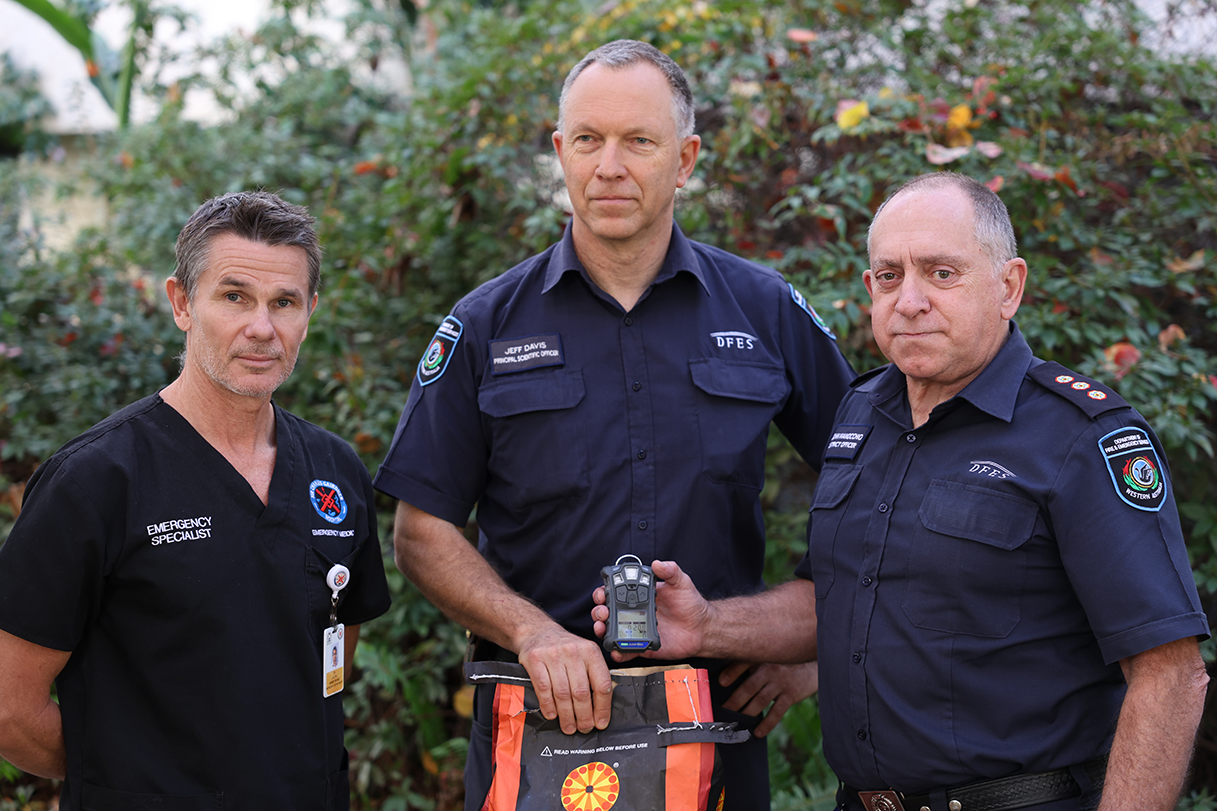Winter warning of carbon monoxide poisoning from charcoal burners
 Dr Jason Armstrong (SCGH), Jeff David (DFES) and John Manocchio (DFES)
Dr Jason Armstrong (SCGH), Jeff David (DFES) and John Manocchio (DFES)
Following a number of harmful cases of carbon monoxide poisoning, Western Australians are being reminded about the dangers of using charcoal burners to keep warm inside their home.
With temperatures dropping, the Department of Fire and Emergency Services (DFES) and North Metropolitan Health Service have issued a warning about the potentially deadly risk of exposure to carbon monoxide from charcoal burners.
Sir Charles Gairdner Hospital Clinical Toxicologist Dr Jason Armstrong said because carbon monoxide was tasteless, odourless and colourless, people often did not know they were being poisoned.
“Carbon monoxide poisoning can cause loss of consciousness or death,” he said.
“For those that do recover, carbon monoxide poisoning can cause permanent health issues.”
DFES Deputy Commissioner Operations Craig Waters AFSM said burning coal for warmth was common practice in some countries and public awareness was key to preventing further harm.
“Outdoor heaters or charcoal burners should never be brought inside to keep you or your family warm as there can be deadly consequences,” he said.
“The poisonous carbon monoxide fumes from these products that slowly build up inside enclosed spaces are incredibly dangerous.
“Even gas heaters shouldn’t be left to run continuously overnight because they can be a source of carbon monoxide when they haven’t been serviced in a long time.
“You can’t smell carbon monoxide as it slowly poisons your body, so the best way to protect yourself is to only use these devices in well-ventilated areas.”
Dr Armstrong said if you think you may be experiencing carbon monoxide poisoning, leave the area immediately and get fresh air.
“If you are experiencing symptoms, contact 000 or call the WA Poisons Information Centre on 13 11 26,” he said.
Common symptoms of carbon monoxide poisoning include:
- headache
- dizziness
- shortness of breath
- weakness
- nausea
- vomiting
- chest pain
- confusion
Incidents involving house fires and heaters typically spike in the winter months when people spend more time indoors and try to keep warm overnight.
“DFES recommends installing a carbon monoxide alarm in parts of the home like the loungeroom to receive an early warning that could save your life,” Deputy Commissioner Waters said.
“We also ask the community to be vigilant around other fire hazards, such as candles, cigarettes and unattended cooking.
“Check your smoke alarms regularly. Only a working smoke alarm will wake you up and give you vital time to escape.”
For more information on home fire safety, visit the DFES website.
Up to date information about carbon monoxide poisoning can be found on the HealthyWA website.

